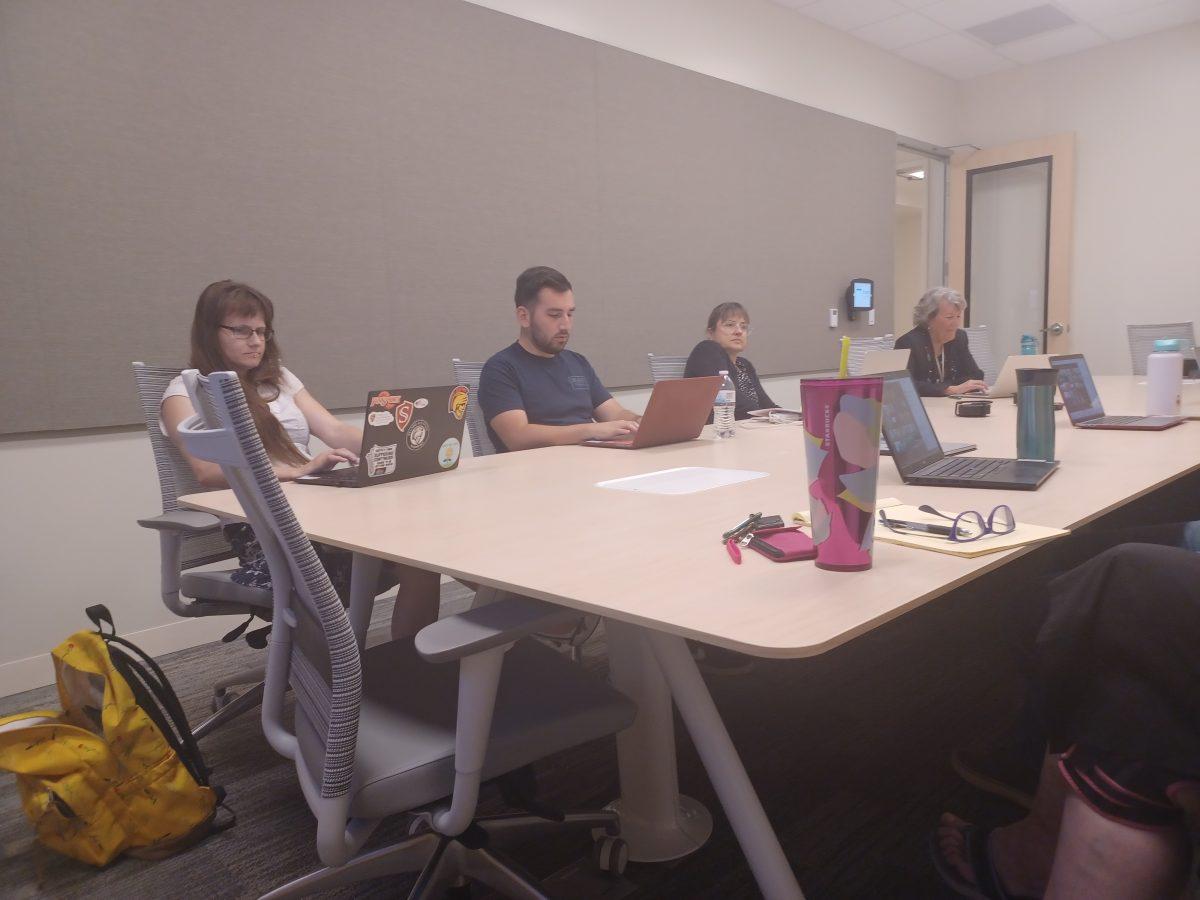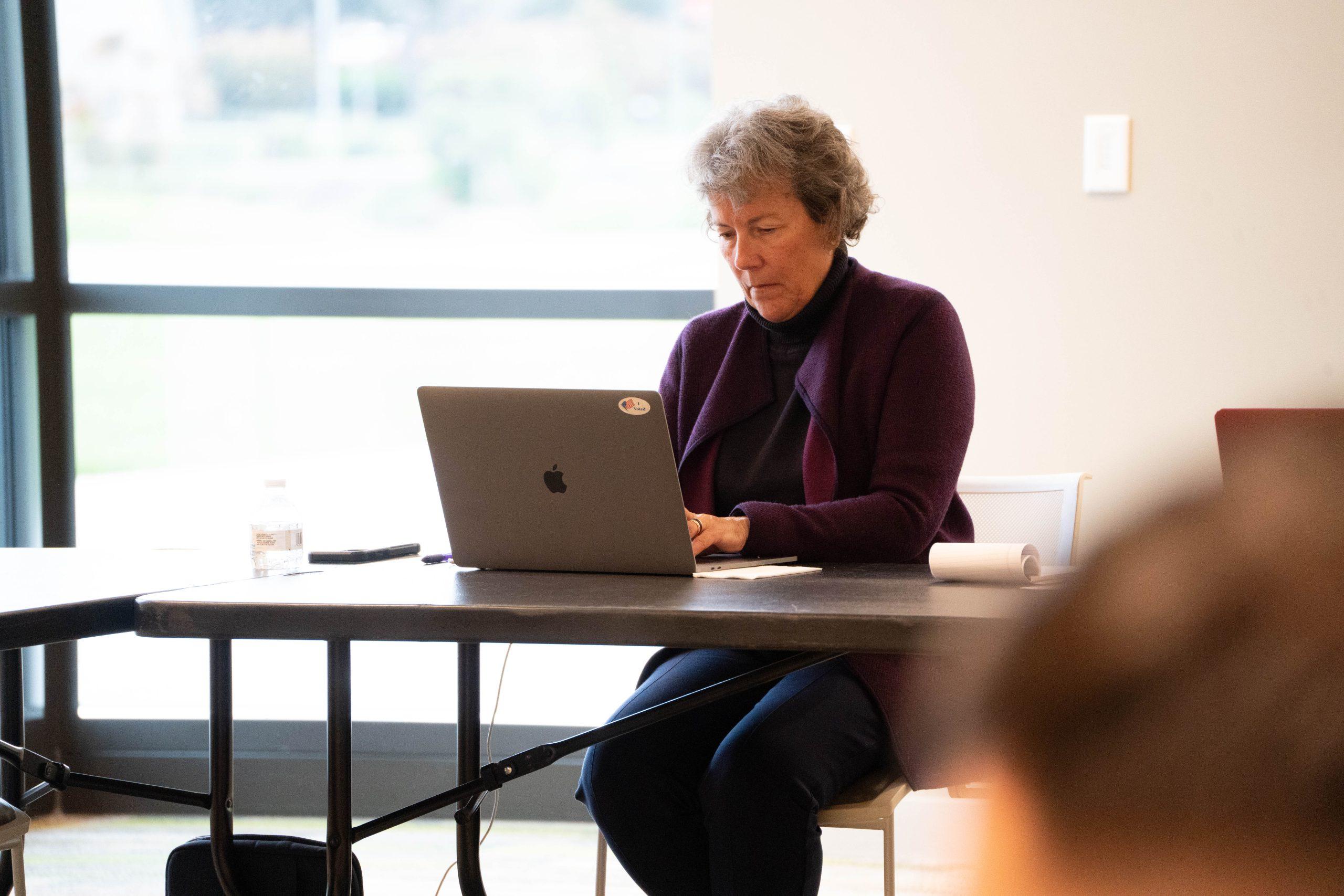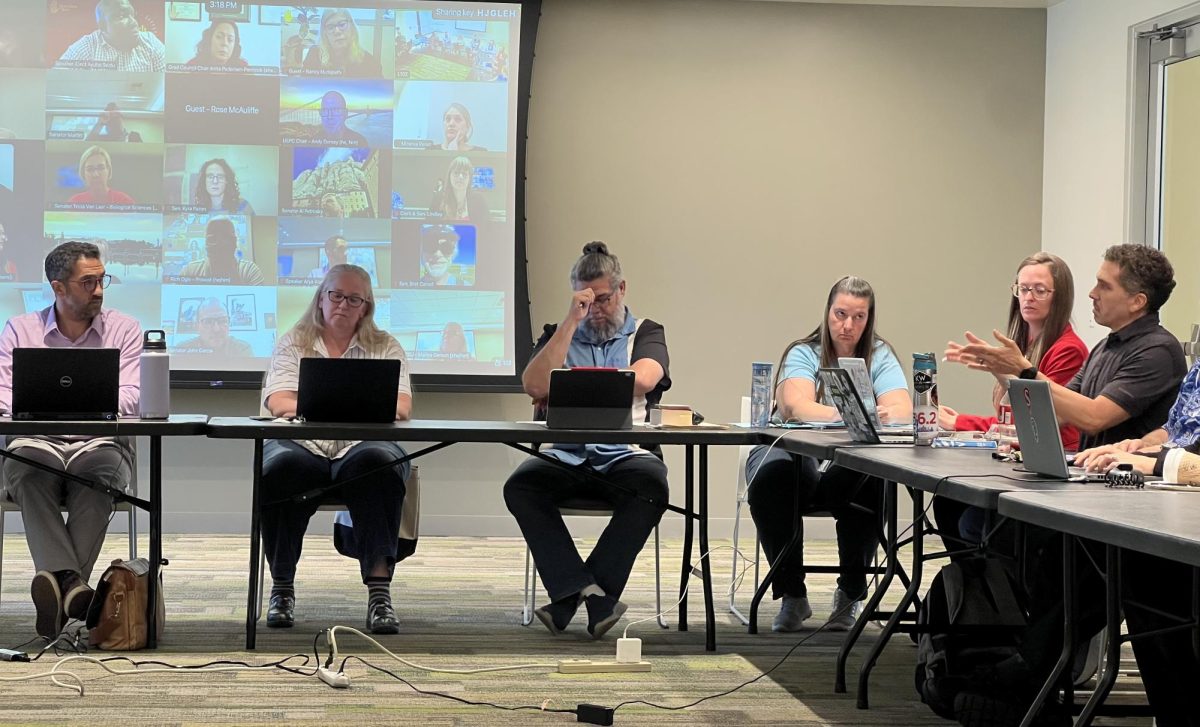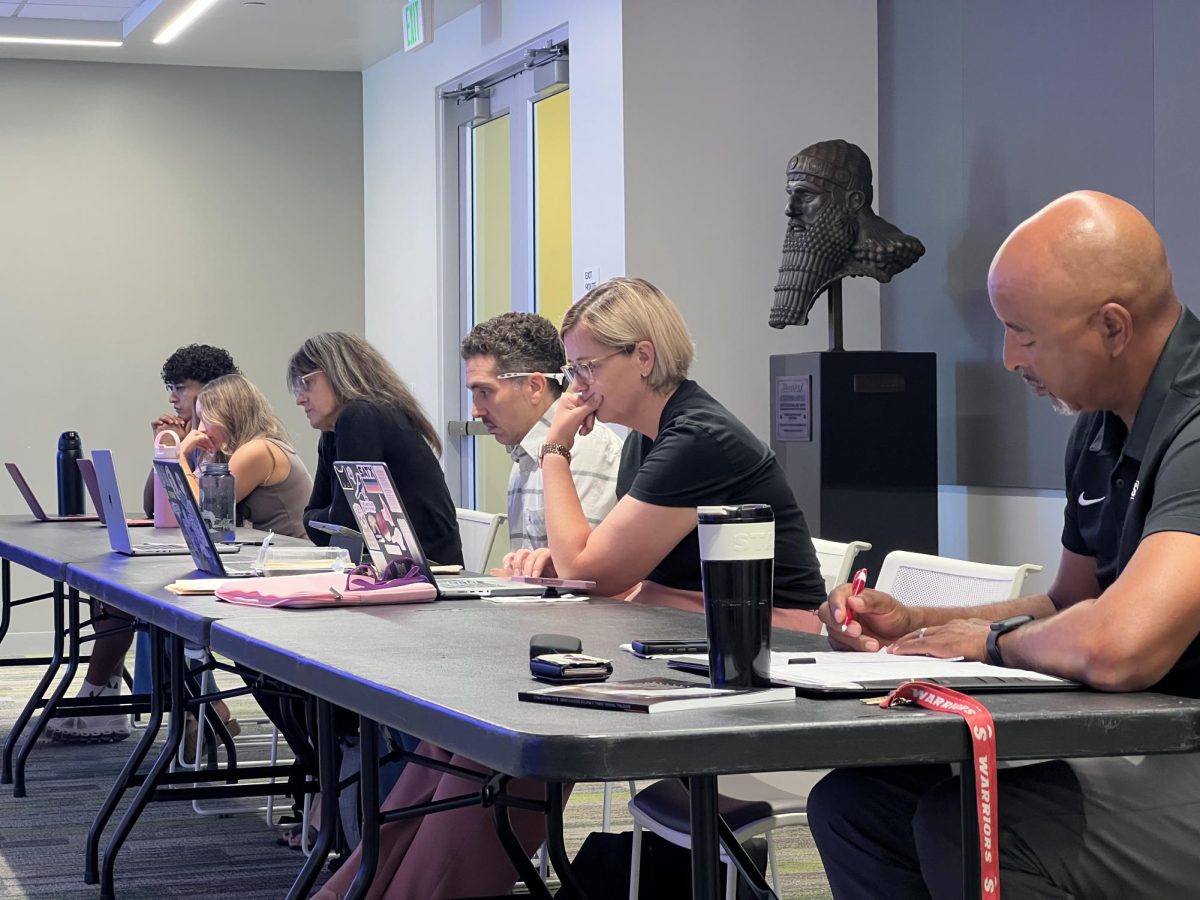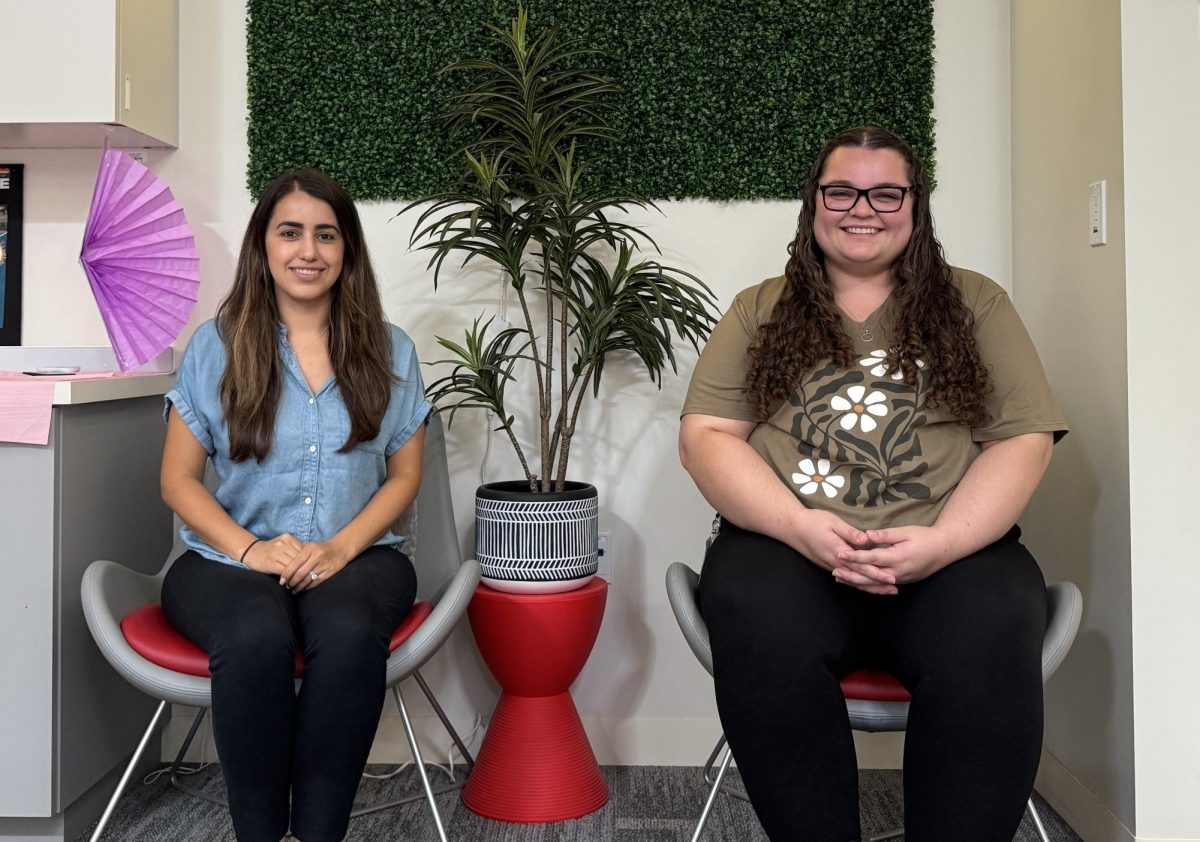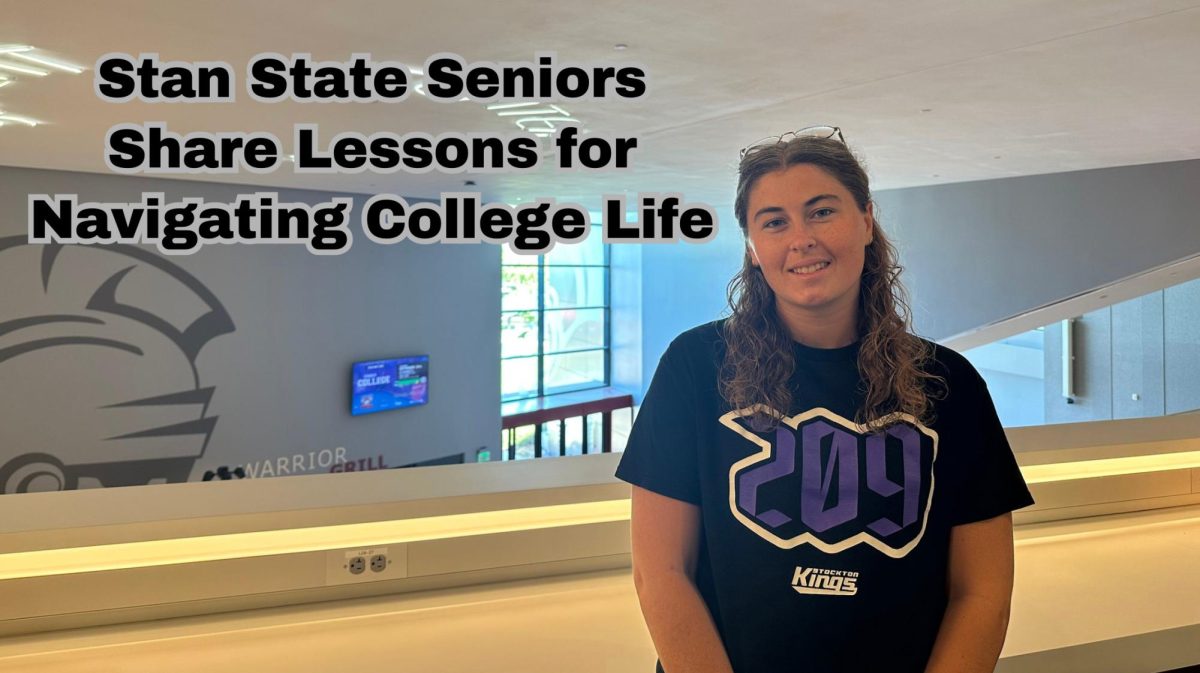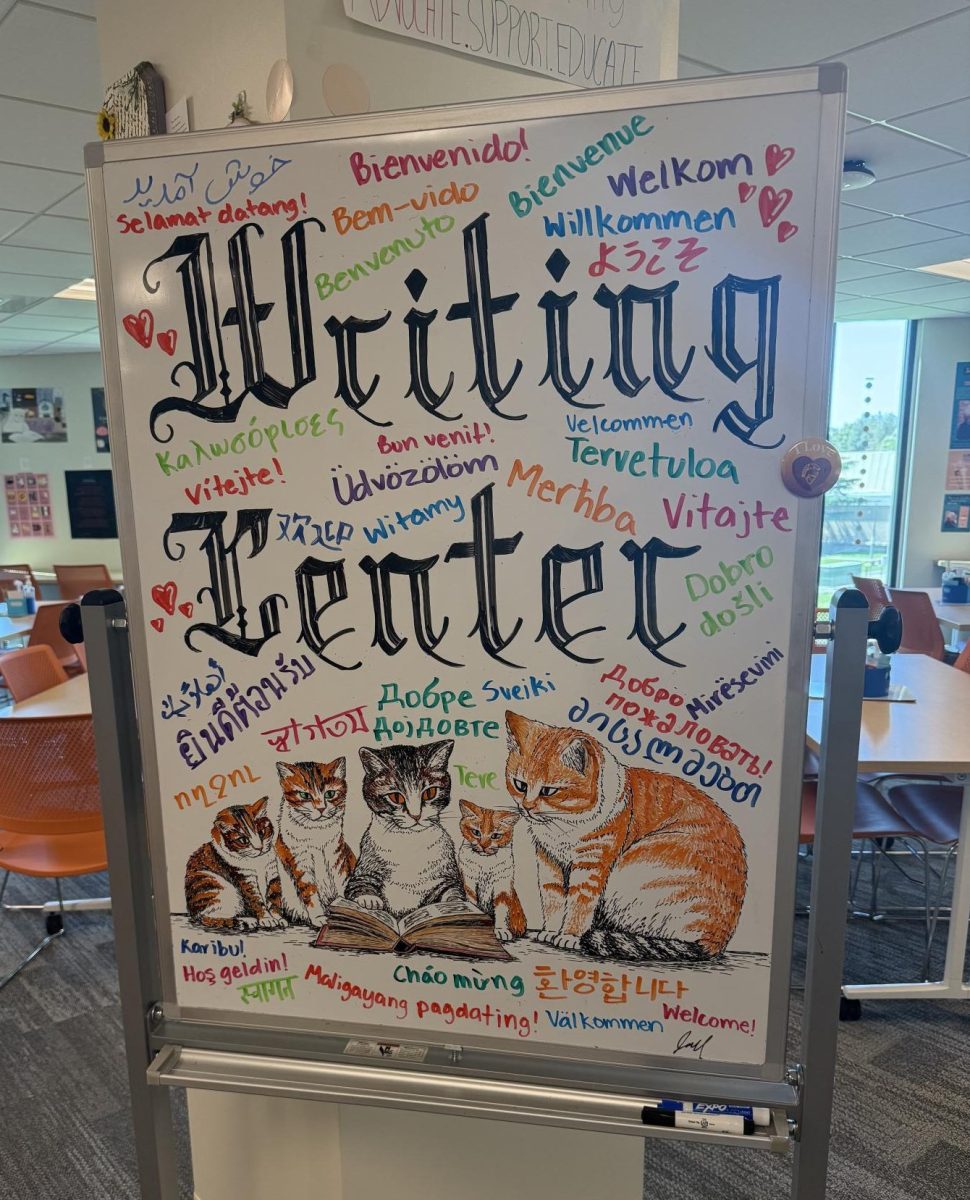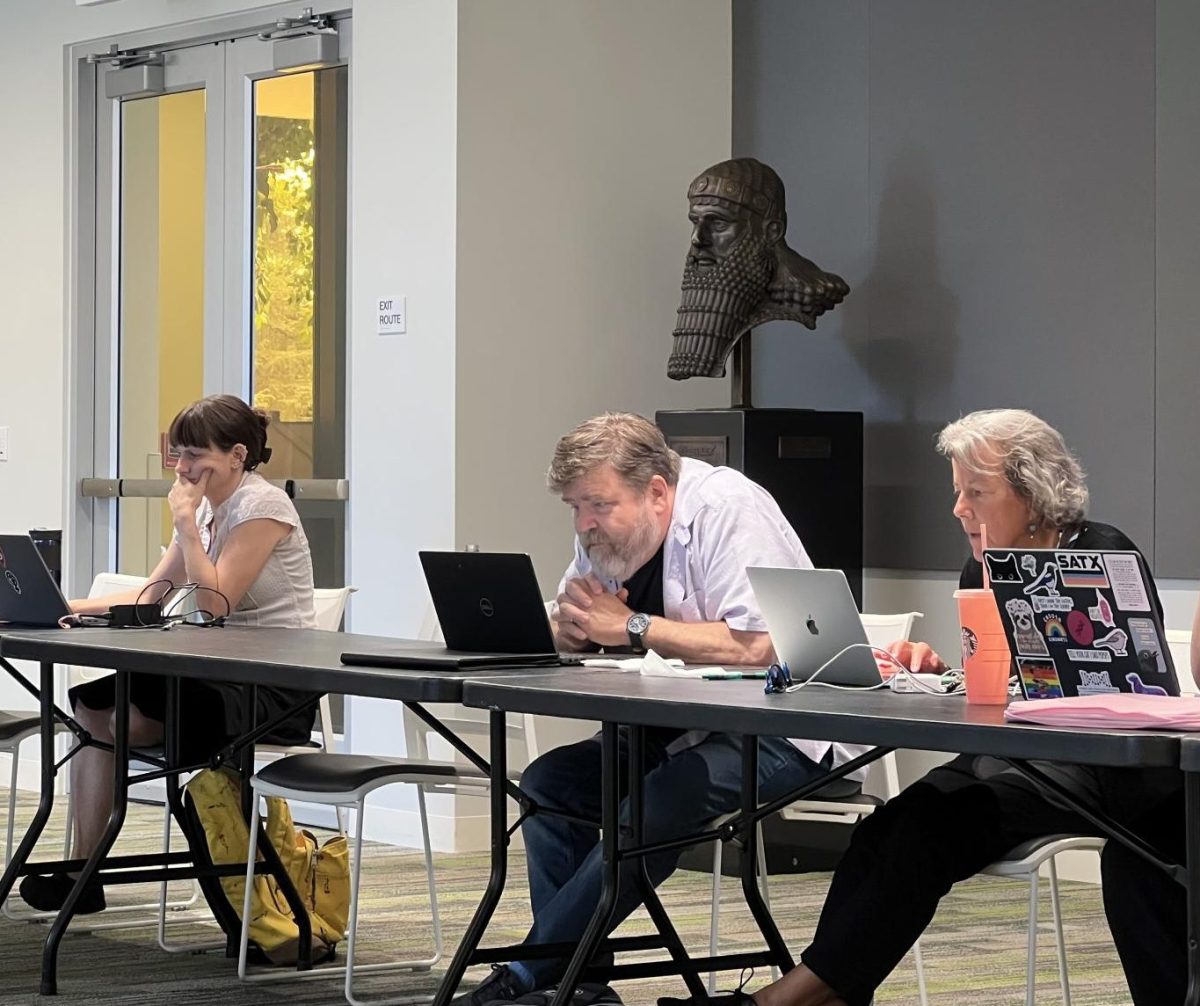In today’s Academic Senate meeting, the Senate approved a large number of new academic programs and affirmed their support for the actions taken by Sacramento State University President Luke Wood to resolve the student demonstrations over the Israel-Palestine conflict.
All of the academic programs approved in this meeting were discussed at length at the previous Academic Senate meeting. This article will only cover changes made to the resolutions made in-between meetings and if the resolution was passed.
Senate Expresses Preferences for Peaceful and Balanced Responses to Israel-Palestine Protests
In today’s Academic Senate meeting, a majority of Senators voted to commend Sac State President Luke Wood for his leadership during the student demonstrations that recently took place, affirming their preference for President Wood’s methods of open dialogue and resolution over methods used at universities such as Columbia College which involve police force and the occupation of campus.
These student demonstrations over the Israel-Palestine conflict are calling for their respective universities to divest their investments in Israel-affiliated corporations and businesses to put financial pressure on Israel to put an end to their on-going invasion of Gaza.
President Wood directed the university foundation’s financial committee to ensure it has no investments in corporations or funds that “profit from genocide, ethnic cleansing and activities that violate fundamental human rights,” according to a report from KCRA News.
This report also states that President Woods is expanding Halal and Kosher food options on campus, launching a new Jewish Life and Resource Center, and is coordinating programs to train educators on anti-Semitism and Islamophobia.
FAC Chair Dana Nakano introduced the resolution to the Senate floor, stating that its purpose was to allow faculty to affirm their support for President Wood’s method of having an open dialogue with student protestors.
CFA Chapter President Dave Colnic also spoke in favor of the resolution.
Colnic said this draft of the resolution presents both a balanced contextualization of a hot button issue and focuses on actions that campuses can take in the face of this issue that are tangible and effective.
The resolution was passed with 30 votes in support, one against, and four abstaining.
All New Academic Programs and Policies Proposed at Previous Senate Meeting Pass with Little Changes
In the April 30th Academic Senate meeting, twelve new resolutions were proposed and discussed in their first readings. Now, at their second readings at today’s session, all twelve have passed with minimal changes.
Items that passed with no changes made include a new Public Health Promotion minor, a new Health Informatics and Data Analytics Concentration, a modification to the Exercise Science B.S., a program to offer an Early Childhood Education credential, a list of learning goals for the Graduate program, the university’s budget priorities, an updated policy for online courses and programs, and a new policy for committees to assess the Writing Proficiency (WP) status of courses.
Items that passed with minor changes include a Public History Certificate, the adoption of a pilot Graduate Writing Assessment program, a policy which mandates faculty to include certain information in their syllabi, and an academic integrity policy which redefines how faculty determine and report cases of cheating and plagiarism.
The changes made to the Public History Certificate, according to UEPC Chair Koni Stone, was a minor change that ensured there would be no redundancies between this certificate program and other History minors.
The language added to the resolution will ensure that this certificate program will have one unique upper-division course requirement to differentiate it from those minors.
Chair Stone also explained the changes and clarification made to the pilot Graduate Writing Assessment program.
Stone clarified that this is a one-year pilot program where faculty, who will be compensated for their work on the pilot, will discuss and test different assessment methods to develop a plan to recommend to the University Education Policy Committee (UEPC) and finalize said program together.
This assessment will be used to gather data on the proficiency level of students’ writing near or at the time of their graduation. This will not be an assessment which has an impact on students’ path towards graduation.
Stone also noted some minor changes made to the Syllabus Requirement Policy, which was the inclusion of some language ensuring faculty that links out to the policy or graphics that display the policy are reasonable substitutes for including the full text of the university policies within their syllabi.
Stone was also tasked with elaborating on the changes made to the Academic Integrity Policy.
According to Stone, in order for the resolution to comply with Title V, the language was modified to mandate faculty to report any instance of cheating or plagiarism in their classroom to Student Affairs rather than only recommending it.
The policy was also changed to no longer specify ChatGPT as the only program which, if used, could be considered cheating. Rather, the use of any “generative artificial intelligence models” could be determined as cheating at the discretion of faculty.
Categories:
Academic Senate Voices Support for Sac State’s Handling of Student Protests and Approves Numerous New Academic Programs
A contingent of Academic Senators meet in Vasche Library room L127 instead of their usual meeting room due to technological issues obstructing communication between virtual and in-person Senators. (Signal Photo/Nix Carbone-Deep)
0
Donate to Signal
Your donation will support the student journalists of California State University, Stanislaus. Your contribution will allow us to purchase equipment and cover our annual website hosting costs.
More to Discover
About the Contributor

Nix Carbone-Deep, Senior Editor
Year: Graduate Student
Major: English
I love controversy and drama. Whenever something contentious or emotionally-charged pops up on-campus or in the wider political sphere, you can expect me to be there to cover it. I’ve reported on abortion access, labor disputes, CSU Board of Trustees’ decisions, federal court rulings, and more. However, I’m always most interested in how decisions like these, or sometimes even political indecision, affects everyday people and aim to shed light on their experiences. I’m into video games, tabletop roleplaying games, reading all kinds of genres (classic and contemporary novels, Renaissance drama, political theory, etc.), horror films, and history (political revolutions and the history of the sciences especially).


